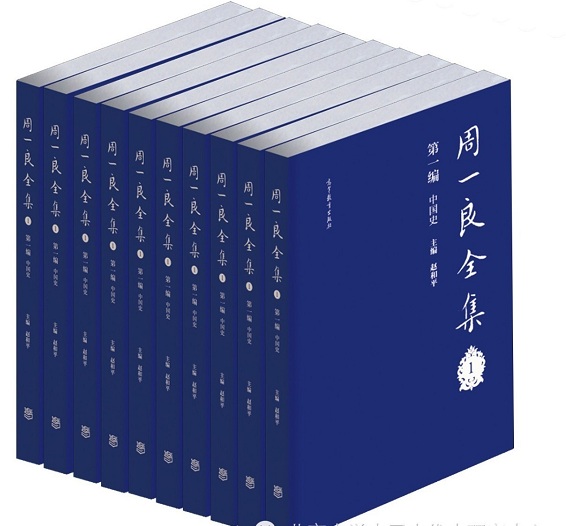Zhou Yiliang’s multifaceted contributions to history

Collected Works of Zhou Yiliang
Chief Editor: Zhao Heping
Publisher: Higher Education Press
Zhou Yiliang (1913-2001), a historian representative of the broader field of Chinese history, is well-known in academic circles throughout in China, Japan, Europe and the US.
Zhou followed in the footsteps of historians Deng Zhicheng (1887-1960) and Hong Ye (1893-1980) at Peking University in his early years. Because of his interest in the history of Wei (220-266 AD), Jin (266–420 AD), and the Northern and Southern (420–589 AD) dynasties, Zhou also took Chen Yinke (1890-1969)’s lessons at Tsinghua University.
Zhou furthered his studies at Harvard University in 1939 and received a doctoral degree five years later. In 1946, Zhou came back to China and taught at the Chinese department of Peking University. He then became a professor of foreign languages at Tsinghua University, conducting research on Buddhist scripture translation, Dunhuang studies and the history of Wei, Jin, and the Northern and Southern dynasties. In 1952, Zhou was again transferred to Peking University as a professor in history. This time he changed his research field to Asian history, also participating in the disciplinary construction of world history for the newly founded China. After the Cultural Revolution, Zhou resumed his former studies on Chinese dynasties. After his retirement in 1986, Zhou began to translate Arai Hakuseki’s autobiography Oritaku Shiba-no-ki, and the Japanese history during the Edo period (1603-1868) as well as the history of cultural exchanges between China and Japan. In his later years, Zhou amused himself by writing autobiographies, memoirs and academic essays, promoting the development of Chinese academia.
Zhou’s contributions are multifaceted. Besides his knowledge on the history of Wei, Jin, and the Northern and Southern dynasties, he was also an expert in other aspects of Chinese history, such as the history of exchanges between China and foreign countries.
The Collected works of Zhou Yiliang had ten volumes, comprehensively presenting Zhou’s contribution to historical research from multiple perspectives. The first volume, Chinese History consists of three books: Historical Comments on Wei, Jin, and Northern and Southern Dynasties (I, II), and Reading Notes on the History of Wei, Jin, and Northern and Southern Dynasties. He also provided 54 entries for the Encyclopedia of China: Volumes of Chinese History. The second volume, Japanese History and the Exchanges between Chinese and Foreign Countries includes two versions of translations for On Japan and Oritaku Shiba-no-ki. The third volume, History of Buddhism and Dunhuang Studies collected all available related theses, including both English and Chinese scripts of Zhou’s doctoral dissertation Esoteric Buddhism in the Tang Dynasty. The fourth volume is Autobiographies and Notes, containing the works created in Zhou’s later life, such as A Scholar as I Am, Interviews of Chinese Cultural Academies, and On the Diamond Anniversary. Indicative of Zhou’s life, these works left rich and valuable materials for academia to study the history of contemporary Chinese academics, because Zhou’s experience is a typical example of the generation of scholars during his lifetime.

 PRINT
PRINT CLOSE
CLOSE